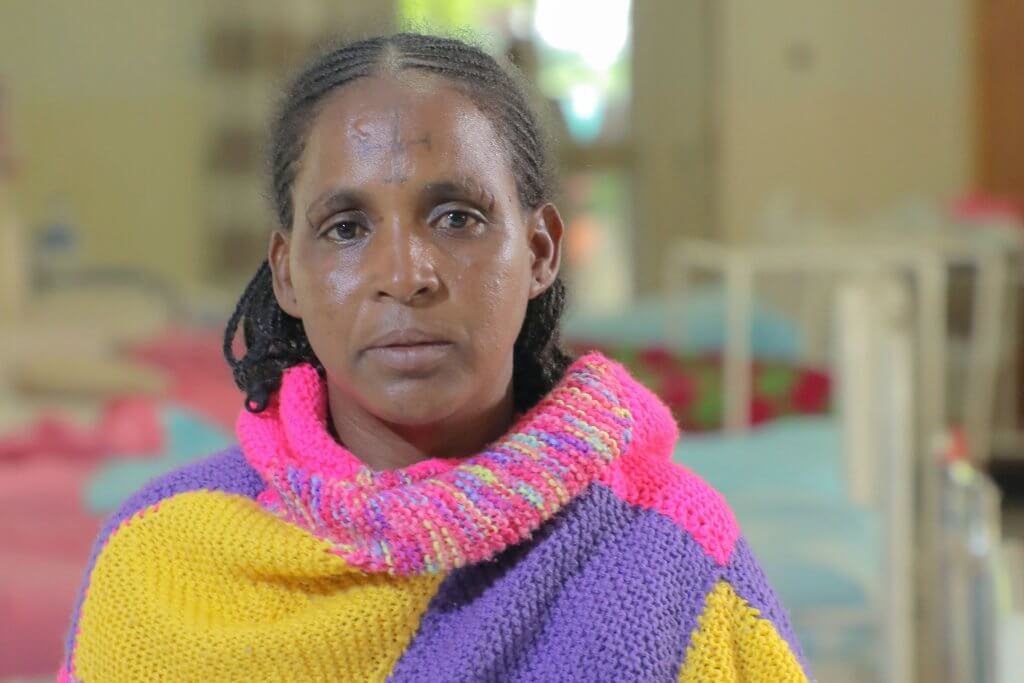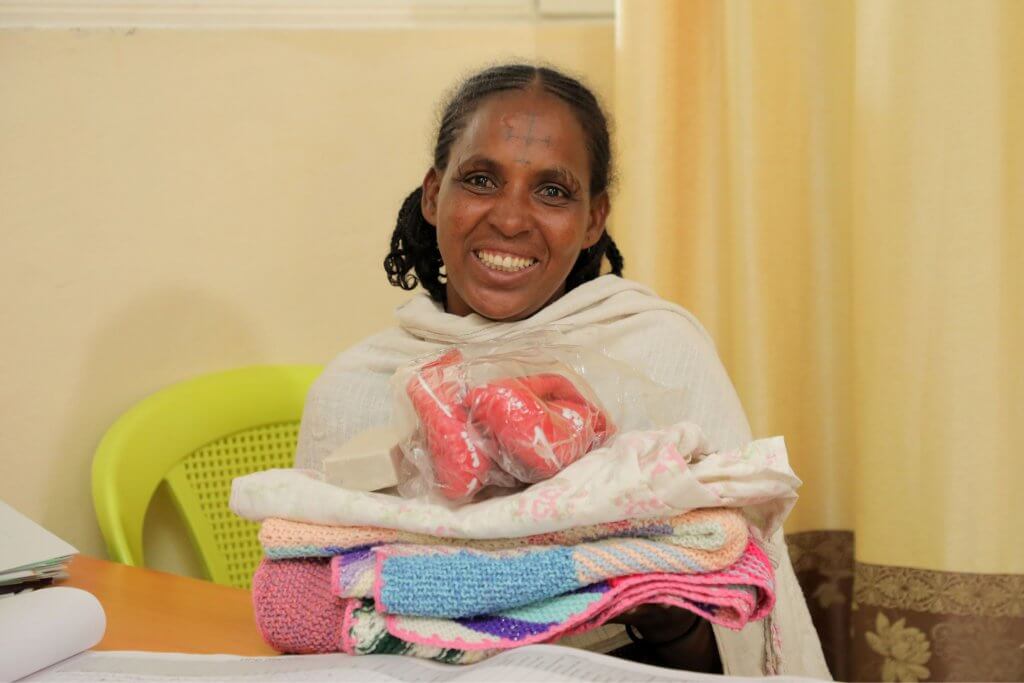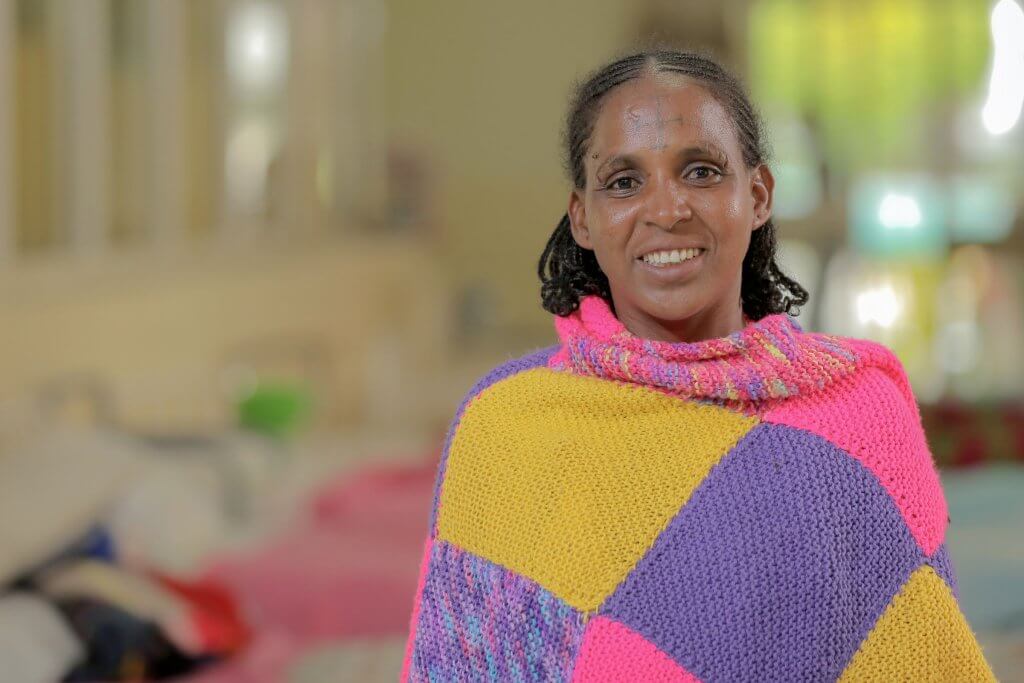After three days in labour, Alem’s husband and sister were desperately worried about her and her unborn child. Having found a vehicle, they managed to transport her to a hospital in their woreda (district) in northern Ethiopia.
Alem received surgery immediately but, while her life was saved, the long and obstructed labor resulted in her baby being stillborn. Later, after leaking urine, Alem discovered that she had suffered a birth injury that would be her constant unwanted companion for years to come: obstetric fistula.
That was 10 years ago. Alem bravely tried to live with her fistula injury, even though she had been given a referral letter for fistula treatment when she gave birth.

A heartbreakingly common situation
For many women living in rural Ethiopia, the costs involved in seeking medical care are prohibitive and are a major obstacle to treatment. It is estimated that there are up to 31,000 cases of obstetric fistula among Ethiopian women of child-bearing age.
Over the years, Alem’s condition worsened. Then war broke out. Alem lives in Ethiopia’s Tigray region which, for several years, endured a brutal conflict which left few families untouched or unharmed. Hamlin’s Mekele Fistula Hospital - Alem’s only beacon of hope for a cure - was forced to close during that time.
The war’s impact on the women of Tigray has been devastating. Those with existing birth injuries have been unable to seek treatment and pregnant women were prevented from accessing maternal healthcare services. According to Dr. Melaku Abreha, Medical Director at the Mekele hospital, fistula cases have soared as a result.
Hamlin’s Mekele Fistula Hospital reopened its doors earlier this year, but the backlog of cases is enormous. The hospital needs to replace medical equipment and supplies damaged during the war and a second operating theatre is opening to provide women with the life-changing treatment they so urgently need.
Welcomed with love
Fortunately, Alem is one of the earliest patients to receive surgery at the reopened hospital. Arriving at Mekele, she was given a Comfort Package representing the start of her healing journey. This includes a beautiful blanket lovingly made by a volunteer, a clean nightgown and slippers, hygiene items and a brand new homecoming dress. These are luxuries for the many women who arrive without shoes, wearing the only stained clothes they own.

Every item in a Comfort Package makes a big impact, showing each patient that they are important and valued. After a decade of living with obstetric fistula, Alem was suddenly wrapped in love, warmth and compassion.
She says: “I am so happy for the services and care I received. My stay here is so exciting both in the treatment as well as the entire motherly care. I loved everything.”
Treating the whole woman
The Hamlin Model of Care, which focuses on treating the whole person and not just the birth injury, has helped Alem regain her confidence as well as her health.

She says: “I eat healthy, dress neat, sleep on clean bed. I received a complete treatment for my cure. When I saw other women like me I hoped that I would get cured. Now I am cured and would like to thank all of you involved. Thank you.”
Donate a Comfort Package to a woman like Alem, as she begins her journey to health and healing.